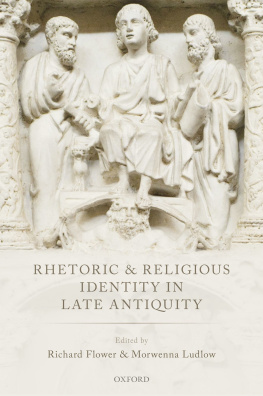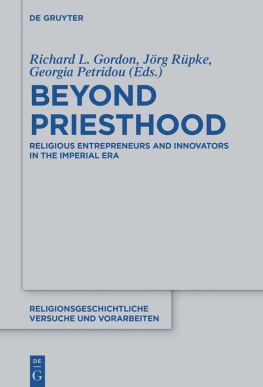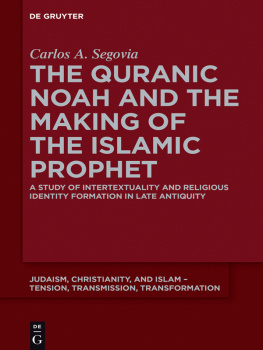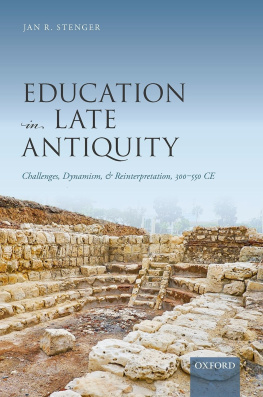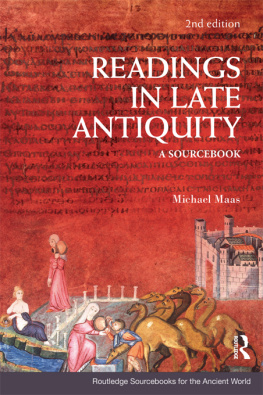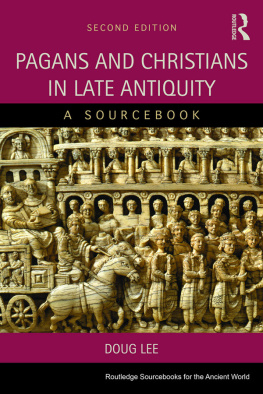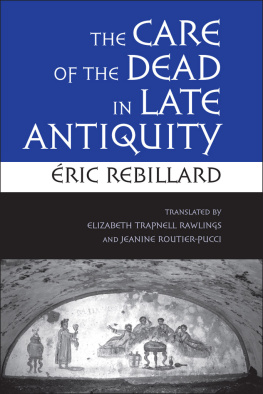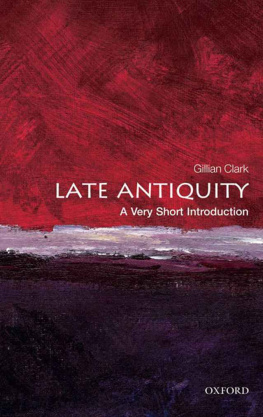Richard Flower - Rhetoric and Religious Identity in Late Antiquity
Here you can read online Richard Flower - Rhetoric and Religious Identity in Late Antiquity full text of the book (entire story) in english for free. Download pdf and epub, get meaning, cover and reviews about this ebook. year: 2020, publisher: Oxford University Press, genre: Religion. Description of the work, (preface) as well as reviews are available. Best literature library LitArk.com created for fans of good reading and offers a wide selection of genres:
Romance novel
Science fiction
Adventure
Detective
Science
History
Home and family
Prose
Art
Politics
Computer
Non-fiction
Religion
Business
Children
Humor
Choose a favorite category and find really read worthwhile books. Enjoy immersion in the world of imagination, feel the emotions of the characters or learn something new for yourself, make an fascinating discovery.
- Book:Rhetoric and Religious Identity in Late Antiquity
- Author:
- Publisher:Oxford University Press
- Genre:
- Year:2020
- Rating:4 / 5
- Favourites:Add to favourites
- Your mark:
- 80
- 1
- 2
- 3
- 4
- 5
Rhetoric and Religious Identity in Late Antiquity: summary, description and annotation
We offer to read an annotation, description, summary or preface (depends on what the author of the book "Rhetoric and Religious Identity in Late Antiquity" wrote himself). If you haven't found the necessary information about the book — write in the comments, we will try to find it.
Rhetoric and Religious Identity in Late Antiquity — read online for free the complete book (whole text) full work
Below is the text of the book, divided by pages. System saving the place of the last page read, allows you to conveniently read the book "Rhetoric and Religious Identity in Late Antiquity" online for free, without having to search again every time where you left off. Put a bookmark, and you can go to the page where you finished reading at any time.
Font size:
Interval:
Bookmark:


Great Clarendon Street, Oxford, OX2 6DP, United Kingdom
Oxford University Press is a department of the University of Oxford. It furthers the Universitys objective of excellence in research, scholarship, and education by publishing worldwide. Oxford is a registered trade mark of Oxford University Press in the UK and in certain other countries
Oxford University Press 2020, Copyright for Chapter 2 ric Rebillard
The moral rights of the authors have been asserted
First Edition published in 2020
Impression: 1
All rights reserved. No part of this publication may be reproduced, stored in a retrieval system, or transmitted, in any form or by any means, without the prior permission in writing of Oxford University Press, or as expressly permitted by law, by licence or under terms agreed with the appropriate reprographics rights organization. Enquiries concerning reproduction outside the scope of the above should be sent to the Rights Department, Oxford University Press, at the address above
You must not circulate this work in any other form and you must impose this same condition on any acquirer
Published in the United States of America by Oxford University Press
198 Madison Avenue, New York, NY 10016, United States of America
British Library Cataloguing in Publication Data
Data available
Library of Congress Control Number: 2020941997
ISBN 9780198813194
ebook ISBN 9780192542663
Printed and bound by
CPI Group (UK) Ltd, Croydon, CR0 4YY
Links to third party websites are provided by Oxford in good faith and for information only. Oxford disclaims any responsibility for the materials contained in any third party website referenced in this work.
This book would not exist without the support and assistance of a number of individuals and organizations. Early versions of most of the chapters were delivered at two conferences held at the University of Exeter: the first, on 24, 25, and 26 July 2015, had the title of Rhetoric and Religious Identity in Late Antiquity, while the follow-on event, Constructing Christians: Rhetorics of Rhetoric in Late Antiquity, took place on 27 June 2016. Both of these meetings were funded as part of the Early Career Leadership Fellowship awarded to Richard Flower by the UKs Arts and Humanities Research Council for a project entitled Cataloguing Damnation: The Birth of Scientific Heresiology in Late Antiquity, with the University of Exeter providing additional financial support. Neither event would have been possible without the fantastic administrative work of Amelia Hurtley and the help of four postgraduate studentsTaylor FitzGerald, Giovanni Hermanin De, Maria Kneafsey, Paschalis Gkortsilas, and Reichenfeldall of whom have now completed excellent doctoral theses. Alongside the scholars whose work appears in the volume, we would also like to thank the other participants at these events for their contributions to some excellent discussions.
Karen Raith at Oxford University Press has been an extremely helpful Commissioning Editor throughout the entire process and the two anonymous readers provided very useful and generous feedback that improved the individual chapters and the volume as a whole. Dr Marcelina Gilka and Dr Helen John both performed extremely important editorial work, for which the University of Exeter and the St Lukes College Foundation provided funding. Jen Hinchliffe, who copy-edited the whole volume for the Press, combined precision and accuracy with good humour. They have all corrected many errors and rectified many problems; responsibility for those that remain lies with us.
Rhetoric and Religious Identity in Late Antiquity
Richard Flower and Morwenna Ludlow
Approaching Religious Identity in Late Antiquity
ric Rebillard
The Rhetoric of Pagan Religious Identities: Porphyry and his First Readers
Aaron P. Johnson
The Maccabees, Apostasy, and Julians Appropriation of Hellenismos as a Reclaimed Epithet in Christian Conversations of the Fourth Century CE
Douglas Boin
Julian the Apologist: Christians and Pagans on the Mother of the Gods
Shaun Tougher
Bodies, Books, Histories: Augustine of Hippo and the Extraordinary (civ. Dei 16.8 and Pliny, HN 7)
Susanna Elm
Classical Decadence or Christian Aesthetics? Libanius, John Chrysostom, and Augustine on Rhetoric
Raffaella Cribiore
Very great are your words: Dialogue as Rhetoric in Manichaean Kephalaia
Nicholas Baker-Brian
The Rhetorical Construction of a Christian Empire in the Theodosian Code
Mark Humphries
What Happened after Eusebius? Chronicles and Narrative Identities in the Fourth Century
Peter Van Nuffelen
The Rhetoric of Heresiological Prefaces
Richard Flower
Constructing Identity in the Tomb: The Visual Rhetoric of Early Christian Iconography
Robin M. Jensen
Renunciation and Ascetic Identity in the Liber ad Renatum of Asterius Ansedunensis
Hajnalka Tamas
Christian Literary Identity and Rhetoric about Style
Morwenna Ludlow
Font size:
Interval:
Bookmark:
Similar books «Rhetoric and Religious Identity in Late Antiquity»
Look at similar books to Rhetoric and Religious Identity in Late Antiquity. We have selected literature similar in name and meaning in the hope of providing readers with more options to find new, interesting, not yet read works.
Discussion, reviews of the book Rhetoric and Religious Identity in Late Antiquity and just readers' own opinions. Leave your comments, write what you think about the work, its meaning or the main characters. Specify what exactly you liked and what you didn't like, and why you think so.

